You’re listening to Danny, on WHAT : DE HEK podcast. This is the place where I share my experience, knowledge and skills.
DANNY : DE HEK: [00:00:00] Welcome along with Mike Armstrong all the way from England. And I think you’re a 13 hours behind us. Am I correct? Or is it 11 hours?
Mike Armstrong: [00:00:22] 11 o’clock at night tonight. This time. What time are
DANNY : DE HEK: [00:00:24] you on?
Let’s see this terminology. We a quarter pass 16 minutes past 11:00 AM on a Tuesday. And I presume you’re on a Monday evening. Yeah. Well, when I was doing daylight saving things that seems to screw us all around. Alrighty. So welcome. Thank you for coming along. We’ve known each other for roundabout 10 weeks now to via Clubhouse and why at the very start we see we’re going to do a podcast exchange.
And so this is what we’re doing today. My format of my podcast, for those for you, who’s listening is I’ve got 12 unprompted questions to ask Mike. And in along the way, we’ll find out who he is and what he’s patient and about. So the first question that is totally random, even, I don’t know what it’s going to be.
What is the distinct, oops, what is the distinction between feeling good in business and not feeling good? What makes you feel good in business, Mike?
Mike Armstrong: [00:01:16] For me, it’s been able to help and impact as many people as possible. That makes me feel good. And if I’m not helping and impacting people, especially large numbers of people that I don’t feel so good.
So I love to help people. And you know, the more the
DANNY : DE HEK: [00:01:31] merrier.
A few years ago, I added a connector into my boudoir things. I do. I think you’d label yourself as a connector. I don’t know anyone actually, who connects people more than you do listening to you on clubhouse? True. Say
Mike Armstrong: [00:01:46] I wouldn’t say I’m a super connector. So I’ve learned, I like to connect with other super connectors around the world so that we can form a super connection. So network really. And you know, I think that then allows you to impact more.
DANNY : DE HEK: [00:02:00] people.
Funny enough, I was listening to your show one day. I’m sure it was yours. There was a lady who made a Scoota locks and she used to live in New Zealand.
That was our common entries, but she was on your clubhouse. And she was looking for people to distribute her new scooter lock. And one of my mates owned a scooter shop here in New Zealand and they’ve been now she is manufacturing, a bigger version of as good a lock for his type of scooters. And I thought that was so cool.
So even though it’s on the other side of the world, a lot of business, we can network quite well using clubhouse Christian, number two, man. Yeah, definitely. Yeah. How do you think now? I don’t know if you have people working with you or for you, but how do you think your coworkers see you?
Mike Armstrong: [00:02:47] So I I’m currently self-employed, but I used to be a corporate sales director.
So I used to work with a big team of people. And I do work with an extended team of people now because you know, I have some contractors and that work partners lead referral partners, collaborators, that sort of thing. And I will say. You know, my coworkers see me as somebody who is giving somebody who’s generous with his time is giving and also very knowledgeable because I like to become the expert in everything that I do.
And so I’m a lifelong learner and you know, my mission is to become the best at all of the things I’m passionate about the best in the world. And I don’t think my coworkers would see me as somebody who is an expert who is knowledgeable and is also somebody who willing to give. You know, to send to others without expectation in return,
DANNY : DE HEK: [00:03:42] always just striving to be a better version of yourself as something I often save it.
I think you’re done. What you just said would be right in line with that. Right here we go. Here’s one, some of you have helped people with a lot of starting up companies. So if you were to start a company from scratch, what values would you build it
Mike Armstrong: [00:04:00] on? So again, you know, as in sort of a. Ties in with the same thing, really, but my value is to give, without expectation of anything in return.
I think if you can build a company on that value, I think that company will become valuable because what happens is, is if you give without expectation of return, people value that and they appreciate that. And people want to return something back in favor for you, or they want to at least. Tell other people about it.
And actually if you, if you can build a business and a brand and a reputation on being valuable, then you will become valued.
DANNY : DE HEK: [00:04:41] Yep. Giving value. Okay. Okay. When you were small what did you want to be?
Mike Armstrong: [00:04:52] So I wanted to play for Wales and be a professional rugby
DANNY : DE HEK: [00:04:55] player. Now I hear there’s been a lot of soccer going on at the moment.
Cause I feel a bit of a chit chat in the room. A lot of soccer, the football, sorry, there’s a lot of football gap. There’s some game going on at the moment that people weren’t wanting to listen to you because they didn’t want to hear the results or some team that you support are doing really well. Is it the Wells team?
Mike Armstrong: [00:05:17] Yeah, the Wales rugby team. We just won a. The six nations and I wouldn’t know, I’ve been a, a captain for Wales even a bridge lion and being a captain for them. I’m a leader. So I would have naturally been a captain if I was going into any of those teams because. You know, our generally our work and the people and I outlearn other people, it’s just something I’ve always done in whatever position I’ve been in.
And so I would have naturally gone to that position and that’s what I’m really wanting to be when I was a young, young child. And then probably from about Lebanon was when I started my entrepreneurial journey. I was inspired by Richard Branson and I always wanted to be my own boss. So I wanted to be an MD of a company on MTV, I own company preferably.
So yeah, you know, I’ve always had lofty. Ambitious ambitions. And yeah. What about the all blacks? How do you like those guys?
Well, I really respect the all blacks because I love winning and I love a winning mentality. I love a winning culture and you know, the all blacks and knowing me a lot as well as rugby fan, because we can’t pick them and we can beat most other teams, but we just top it, they all backs and they really, they really annoying the, the, the backside of me.
They’re a frustrating team, but I really respect them for that winning mentality, attitude and
DANNY : DE HEK: [00:06:36] culture. I could stop my, the guy, the sports question. All right. I don’t know anything about your family at all. But this question, remember, I didn’t make these questions. I had AC had a group of people help me pick them out, but it says what, what’s your favorite family tradition?
Mike Armstrong: [00:06:53] Hmm. Well, it’s what I miss most now is a a hundred Sunday lunch on a Sunday. My mom’s moved to Turkey, but before she went to Turkey, are you selling a Sunday lunch over her house? Most Sundays are before that, over my Nan’s houses. And I’m a big fan of a Sunday lunch. And now my mom’s in Turkey and Econo lands with me anymore.
I definitely missed the Sunday lunch. I’m such a big fan of them, but I don’t cook them myself. I’d rather, I, when I cook, I like to cook in a walk rather than you know, loads of other pans and ovens and all that sort of stuff is it’s a load of hassle for me, I’m into efficiency. So I don’t tend to cook myself Sunday dinners, but I do love to eat them.
DANNY : DE HEK: [00:07:33] What, what was your last meal? You head what’d you eat?
Mike Armstrong: [00:07:37] The last meal I had was I made myself like a stir fry. Well, it was chicken, onions and vegetables with noodles and I put on the the what’s the stuff, the cage, the spices that you make for heaters out. Tough. And so I made myself like a heater noodle,
DANNY : DE HEK: [00:08:00] stir fry.
Oh, well done. I know when I was cooking for myself, I used to find myself eating out two or three times a week a day, actually. And it’s so hard when you’re at home to get motivated and get your ass off the computer seat and go cook yourself a meal, but we’ve locked down. We’ve all learned more about cooking at home.
Haven’t we. Yeah, definitely.
Mike Armstrong: [00:08:20] Well, I love a bag of chips on a Friday, Friday night bag of chips you know, fish and chips. And then yeah, most of the time I actually quite like copying, but only if it’s in a walk.
DANNY : DE HEK: [00:08:31] Right. Here’s a good question for you. Have you watched the back to the future?
Remember that movie? Yep. So if you could go back in time, what year would you like to travel to?
Mike Armstrong: [00:08:41] I think it would be. Around 97 to 99 and 70 around there, maybe 99, 99 was an amazing year. Yeah, that’s really why 99 was a good year. Is I was. 22. Great as a great time from sort of 16 to 25, you know, that sort of time I was partying all the time and and all that, but 99, I remember it was, it was a really good year because the rugby world cup was in Wales as well.
And it was just. It was a really great time to be a farmer and just enjoy the music of the nineties and going out all the time and then rugby and just loads of things, which made it a great year. And obviously looking forward to the millennium, the millennium celebrations and all of that. So I’d say 99 was a, was a good year.
DANNY : DE HEK: [00:09:32] I was actually in Wales around 99. I think the tune of this when we went into 2000, I’ve traveled 25 countries in four and a half months. So it was from 1999 to 2000 when I got back. But I did go to Wales actually. So this is where you are. Isn’t it look at the right.
Mike Armstrong: [00:09:49] Yes. That’s my DIY, as you didn’t say England earlier on, but I don’t mind, you know, I understand that you he was, he’s getting things wrong now and then
DANNY : DE HEK: [00:09:58] I’m a Kiwi.
Mike Armstrong: [00:09:59] Yeah,
DANNY : DE HEK: [00:10:00] yeah, yeah. Okay. Form of public transport. Do you prefer, we’ve got choices here. You can net another one. If you liked, we’ve got ear, there’s a plane boat. That’s the thing that floats on the water train that goes on rails, bus, or car. What if you had to get on public transport? What would you, what do you like doing.
Mike Armstrong: [00:10:19] So I love the sea. I’m a water baby. I love anything to do with water. I love houses. I look over the water. I love looking into the ocean and into rivers and lakes and that sort of thing. And I love Pope’s. So it’s not a, not a tough for me. Although I’ve never used a boat as public transport, except maybe once or twice when I may be in greases, I’ve used them as water taxis up the ghost line.
But other than that, I don’t really use them as public transport. I quite like the train as a public transport method, because you can crack on with your world, okay. Your laptop out. And you’ve got all your plugs and the charges and all of that. You can work on them and do your social media. So as actual, as a public transport mode, I like the train.
But anything to do with boat speeds, you know, Chinese Amsterdam, because I just love the water.
DANNY : DE HEK: [00:11:06] I, I lived in a place called Picton in the South Island and I had a apartment that overlooked the seat, but right in front of me, there was this fishing boat and it was I think $85 for the day. And you could go fishing.
It would be six hours, but so I got mobile internet and I’d work for two hours fish for an hour and a half ish and then come back and work for two hours. And I did it so often. It was just so cool to be able to actually do it. Yeah. So yeah, you’ll probably endure that I’m a vegan now. So I haven’t caught any fish lately who plant based agent,
Mike Armstrong: [00:11:38] as I say.
I’ve got a lot of some of the best experiences in my life, around the boat. You know what I mean? I’ve been sailing in the British Virgin islands. When I went to you still are both parties when I was a Homer around us, all 18, 19, 20, 21, 22 and 23, 24 and sort of age, I used to go on a boat party called Aqua boogie, which used to be in a turnoff in South Wales.
We are just like a lots of. Great memories of, of boats. I went to Cuba and went on a catamaran. Just, yeah, just, I love boats. The waters. Yeah.
DANNY : DE HEK: [00:12:13] Good stuff. All right. Let’s get through the Questions. We’re nearly, we’re not nearly done. I think we’re nearly halfway. Is your glass half full or half empty?
Your glass half full or half empty.
Mike Armstrong: [00:12:24] So I’m Welsh and I’m an optimist and a positive person. My glass is always full. And it’s always overflowing into more glass is a more bucket. So it’s never, it’s not half full or half empty. Don’t give me a half full glass. I want a full one. I want it to be so full that it’s pouring out. So I have to keep drinking it, you know, and just keep flowing. Yeah. That’s my classes is overflowing.
DANNY : DE HEK: [00:12:48] I answered that question. The best that anyone ever has. How about that? Okay. Food back to food. What is the most unusual thing that you’ve eaten?
Mike Armstrong: [00:12:57] Probably some like somebody like a oyster cockles or somewhere like that, because those things, when you look at them, you just say, well, why would you eat them?
DANNY : DE HEK: [00:13:06] Did he eat them all?
Mike Armstrong: [00:13:09] I think I tried it an oyster it was like horrible. And why would you
DANNY : DE HEK: [00:13:13] Did you eat it raw?
Mike Armstrong: [00:13:15] I also want raw fish as well and raw fish sushi. I’m not a fan. I like my fish cooked. Vegetable sushi.
DANNY : DE HEK: [00:13:23] visitable sushi.
Mike Armstrong: [00:13:26] Yeah. You can have like rice and vegetarian type of stuff.
DANNY : DE HEK: [00:13:30] Yeah, no, I was thinking the fish fish
Mike Armstrong: [00:13:33] The stuff that you have, like a, you know, as a, as an alternative to fish, you know, and are like all that sort of stuff. But yeah, there’s a few things I’ve had unusual. yeah, there’s definitely a, see, I’m not a big fan.
I like Cod and a monkfish and Judas stinks. I like meaty fish.
DANNY : DE HEK: [00:13:54] Have you ever heard of keener or sea eggs? Oh, my brother used to be a diver and he used to go out and get these sea eggs. They’re like a hedgehog and you break them open and it’s like the pus out of an elephant eye, and they eat them raw and it’s just gross heirs and I can’t even figure out. Like these seeds are massive. And then you just get this sliver of slush. And I still remember seeing my brother eating them go, Oh, that’s good. I think it was more of a personal challenge than a delicacy, but yeah, we had the other one too. We get here. I don’t know if you hear them as puna. And everyone who there’ve been into puna, but everyone that wants you to eat them tells you how, what the recipe is.
And by the time you finished putting all the ingredients and I beat you can’t even taste, whatever it isn’t it a little own the puna, because it’s taste about keeping Jas.
Mike Armstrong: [00:14:44] That’s the thing, when they say sprouts are great. So then you say, Oh, you cook them. And they’re like, Oh, I forbid banking enablement. Well, you don’t even say sprouted designs in the flavor.
DANNY : DE HEK: [00:14:53] Crazy. What more are you wanting out of your business right now? If somebody sits here money, isn’t a problem time. Isn’t a problem. What more would you want?
Mike Armstrong: [00:15:04] Well, my mission, a laser focus mission right now is to be speaking on stages around the world, big stages globally.
So that’s what I want more on my business right now, because at the moment, I’m at the speaking for free stage and doing free events, that sort of stuff, which is great, but I want, you know, more, you know, higher profile paid for gigs on big stages around the world because I want to. I want to impact more people and that’s obviously one way of doing so, plus also, I wouldn’t mind earning some bigger bucks than I do now because I’d like to put all of our money into a like a trust fund or a startup fund and help start a businesses.
So I help them already with knowledge, information, advice, inspiration, and support and connections, and I’d like to be able to give them some cash as well, if they need it. If I think it’s right.
DANNY : DE HEK: [00:15:57] angel investor and this,
Mike Armstrong: [00:15:58] because a lot of the time they tell them all the time they don’t need cash. Cause they’re just wasted.
But sometimes you do need it for certain it developments or stock purchases or whatever. Yeah.
DANNY : DE HEK: [00:16:08] Like angel investor sort of style.
Mike Armstrong: [00:16:11] I’d like to be a proper angel. Why would I just give it, given the money or, you know, give them a interest free loan for as long as they need it. Last thing rather than what I see angel investors are, which is basically just investors.
DANNY : DE HEK: [00:16:24] You have any wings. Do you have any wounds? Okay. I can’t see where we did dress up of. It was a couple of wigs as an angel
Mike Armstrong: [00:16:34] anyways. No, but but the most angel investors are really in it to make money, whereas I’d be in it to actually help them. There’s a different purpose.
DANNY : DE HEK: [00:16:43] I think when you start your own business and it’s not your money, I think the approach is different as well.
So I think there would be one. Difficult thing is trying to find people that will treat your money. Like it’s their money, you know? Cause they give it a go. Sometimes some of these people don’t they with other people’s money, but I’ve always slowly built things I’ve done and made sure it’s feasible. And you know, I
Mike Armstrong: [00:17:06] wouldn’t give the money just Willy nilly. They’d have to pinch it, have to be an integral part of the business that they couldn’t do without. You know, would have to be that and adapt to be you know, some way, which would get them to value it. You know what I mean? So there’s definitely some sort of. Built-in something which wouldn’t be a mechanism that would get them to appreciate some valuations, but in a, you know, a lot of the time business people, they don’t need the money.
That’s why I’m a philanthropic entrepreneur now just like given the help and the support, the advice, because it’s like the old proverb, you know if you give a matter of fishy lead for a day and you teach a man to fish, he’ll eat for a lifetime, I’d rather teach the people to fish. Cause if you’re on the fish cash, And they’ll just eat and then they’ll be gone again. And then they still competence. No more fish.
DANNY : DE HEK: [00:17:52] Yeah. I always struggled with being entrepreneurial. What I personally believe that it’s very, it’s something you can’t teach very easily, somebody to be entrepreneurial because I don’t actually really understand what it is. And I mean, as that striving, after making something happen is what entrepreneurial people do.
And I call myself a serial entrepreneur because I’m always starting up new ideas, looking for opportunities. And I think you’re very much the same. Yeah, I think
Mike Armstrong: [00:18:18] I think an entrepreneur is a problem-solver some who see and opportunity. Fills it in and then, and then you know, takes massive action in order to fail it.
So it doesn’t just, it doesn’t just see it. And then once it’s solved for you actually create an organizational structure for people around them to actually fulfill that opportunities. So that’s where I would see an entrepreneur is, but also a risk taker. You know, so an entrepreneur is somebody who will take risks, but calculated risks based on his knowledge, experience and expertise, you know,
DANNY : DE HEK: [00:18:52] you just said calculated, calculated risks is what it’s all about.
And I think people think that entrepreneurial people don’t calculate the risks and Richard Branson. What you mentioned earlier on he’s he’s brilliant because he would always put 50%. Of his current business, into his next idea. And then he wouldn’t be putting everything on the line, but he’d put a big stake in it.
And that was how he he’s now got over 500 companies, obviously. So he knows what he’s doing when it comes to that. And then he doesn’t fall over. You see? All right, I’ve got two more questions. You said you like boats you’re in a boat. And it’s smashed up against the rocks and you have to swim to shore and you’re on a desert Island.
What’s three things you would take or wish you head with you. If you were stuck on a desert Island.
Mike Armstrong: [00:19:36] One would be my phone wifi. I can’t live without my phone. You know, my phone is like my office. It’s like an extension that my hand is almost constantly in my hand, so I can live without that.
DANNY : DE HEK: [00:19:51] How are you going to charge my phone?
Mike Armstrong: [00:19:53] What’s that?
DANNY : DE HEK: [00:19:53] Are you going to charge it?
Mike Armstrong: [00:19:55] Well, hopefully there will be a charging point in a plug there.
I could actually wish for the charging points in the plug and then use all my three up primaries. I’ll give you something a bit more interesting than that. Yeah. So yeah, the phone and then I would say what else would I want there? Probably running on the same electricity as the phone charger. Yeah. A bar full of cider and a sun lounger.
DANNY : DE HEK: [00:20:23] Okay. I sounds like you having a holiday play your best.
Mike Armstrong: [00:20:28] You can be. You can be by phone that says lounger and a bar for a cider and I’ll be happy. I’ll stay in the items for the rest of my life.
DANNY : DE HEK: [00:20:37] The boats would come along. Oh, we found you and you go. No, I’m good. I’m good. I’m good.
Mike Armstrong: [00:20:42] Since I didn’t have to
DANNY : DE HEK: [00:20:45] Top the fridge for jump, we’ll get off my Island. All right. Last question. If you ruled the world, so you’re ruling the world now and what would you change on day one?
Mike Armstrong: [00:20:53] I think what I would change on day one is to get rid of all of the country leaders and to form a United nations government.
DANNY : DE HEK: [00:21:07] Called Armstrong
Mike Armstrong: [00:21:08] One person running the world. Yeah. And collaboration of the whole world, because that’s the way the whole world’s going. And I just don’t know why they don’t stop messing about and just do it. Let’s just all collaborate together as one nation, one world we’ll.
DANNY : DE HEK: [00:21:23] Call it clubhouse. Shall we?
Mike Armstrong: [00:21:25] Yeah.
DANNY : DE HEK: [00:21:26] But one thing I’ve noticed,
Mike Armstrong: [00:21:29] I think it’s a wasted on maturity. Too long collaborate together because the whole world is globalizing. It’s all fitting together, but we’re still operating as individual silos. We’re trying to run countries when the world is global countries, don’t really do the job anymore, you know? Now we need to learn together that
DANNY : DE HEK: [00:21:52] We do. I totally believe that’s true. And I think one thing I’ve done with because I’ve met you on clubhouse and I’ve coined a phrase and clubhouse equals the world needed to talk. And one thing I have noticed is that people in clubhouse aren’t a racial, or they don’t seem to judge anybody.
I mean, we’ll get all different types of people coming along. And this seems to be none of that. You know, we, we prejudge people when we meet them or. It’s just a, I think it’s a beautiful thing. Really. So tell us,
Mike Armstrong: [00:22:21] Thing is yeah, the reason for that is because the invite only system people have only invited their best people generally is coming.
Charles, come in now and then people are inviting their backs. Contacts and relationships. They’re not invite in people who are going to let them down because of the also you can get blocked if you bring someone in who’s at a troublemaker or wherever. Yeah. So it’s, it’s like naturally policed itself to pearly influences of the world there.
And most of the influence of the world, most of the connectors and stuff, people that Cosmopolitan. They used to mix it with different people of different races and ethnicities and stuff. The people who are racist and sexist and homophobic and all of the prejudices. These people are usually small margin people with small experiences and they don’t, they don’t have a lot of, you know life experience to take them out to that small mindedness.
That’s the difference, you know? So that’s why you know, we need to encourage people to go outside of their comfort zone, get outside of their little village or, you know, town or whatever, and experience the world. Because what I realize is then is that all people are valuable or people have something to contribute.
You know, there’s, there’s no reason to have hatred towards other people just because you don’t
know them. Hmm. No
DANNY : DE HEK: [00:23:36] I agree. Where do you think the future of clubhouse has going?
Mike Armstrong: [00:23:41] Well, I think I think hopefully clubhouse is gonna stay roughly. Where it’s at, it’s probably going to double or triple, at least because of the Android side of things, but I’m hoping that Twitter and Facebook and everything produce rival products so that the mass market people who haven’t been invited into a clubhouse.
Don’t end up in that, you know, the ones who weren’t invited in don’t end up gravitating towards it when it opens up. Cause they ended up gravitating towards the Twitter and Facebook versions because it sounds a little bit elitist and it probably isn’t the abilities point. Like the influencers that are in clubhouse at the moment, but not being interrupted by all the plebs of the world.
To be honest with you because like, like I, I quite like educating people and helping people and I’d love another platform. I’d go into Twitter and Facebook and whatever and try and educate. The people as well. I wouldn’t just not get involved in Lambert. I think clubhouse on its own as a standalone feature right now with a lot of the influences of the world in is a great place.
And I’d love it to stay like that.
DANNY : DE HEK: [00:24:46] Yeah, no, I agree. And I, I, I’m a bit of a snob with Apple products. My dog has actually called Apple eye dog. And the fact that I think only Apple users can actually get on there at the moment. I think as a, as a cost, you $2,000 for a good iPhone, I think people can afford to purchase those bits of hardware.
You know, versus a $200 or $300 Android phone. I mean, there might sound really snobby, but I just think we’ve got a good class of people on there at the moment. And I think that will give it. It’s like anything you start in business, even entrepreneurial people, they start small, grow, grow big. And I think the foundation, their clubhouse is built, even if it does open up to the world.
And that I think we, at the moment we’re at about 12 million people that are on it. If we get up to 200 million people, I think the foundations and the, what the developer is trying to accomplish is actually probably hopefully can stay the same and just grow organically, which is perfect. That’s what good businesses are grown on.
Mike Armstrong: [00:25:44] Well, I think, luckily the reason I joined clubhouse and put so much time into it so quickly
DANNY : DE HEK: [00:25:50] tell us how much time tell us how much time you’ve put on clubhouse. Tell us how much time you’ve put into clubhouse.
Mike Armstrong: [00:25:56] I’d be down there. I’d be down there 11 weeks. I, I was using it mostly 20 hours a day for the first.
Three weeks and then I’d probably be using it for between 17 and 18 hours a day for the remaining nine weeks. But I run a 24, seven room calls through the big rooms on clubhouse. And and so generally I’m, I’m always on clubhouse, even when I’m sleeping, I go to sleep to it on and I wake up to it on.
So actually always on clubhouse, but I’m, I’m. Creating my community because I see this as a brand new platform to go on and make a community. And, and the good thing is, is that, like you said, even if it gets full of other people, I’ve already carved out my room now and people already keep coming back and forth.
So hopefully my community would stay. You know, fairly small, but it’s growing. It will just stay small, but grow organically, just fresh people coming in and nice people coming in. But just keep the riffraff out, like, you know, and that’s good. Moderating can do that. And in a way over time, just by, you know, making sure that everyone conducts themselves while on you battling from the room.
DANNY : DE HEK: [00:27:06] Yeah, that was good, man. Hey, it’s been nice to have you on I’m actually. We’re going to call it. We’ve done a enough talk and I think if you want to find Mike Armstrong on clubhouse, just go in there and search for his rooms. He’s got a club as well called screw the big rooms. And the concept behind Mike’s room is different than other rooms.
For example, if you go, when you first get in cloud pass, you find these rooms with thousands of people in them, and you, you go into these rooms and you’re just a listener. The real point of difference with Mike’s room is the fact that you can go into his room. Often Mike we’ll make you a moderator. So no, one’s like got the hierarchy and then you can talk with other people.
And it’s just such a good way of running a room. And I spend 95% of my time in the smaller rooms, having conversations with people. And if you haven’t, if you don’t know anything about clubhouse and you’re new. Get yourself into Mike’s room or any other small room, click that hand, put yourself up, put you on the stage and start interacting with people.
And if you’re thinking about podcasting, clubhouse is certainly a great platform to practice your speaking skills and I’ve improved. And I know you’ve improved Mike, so it’s just a real good thing. So thank you for coming along. And I really enjoyed having you on the show and I’ll let you know, that’s come out.
P.S. If you like this podcast please click “like” or provide comment, as that will motivate me to publish more. Would you like the opportunity to be featured on the WHAT : DE HEK Podcast? You are welcome to INVITE YOURSELF to be a guest.

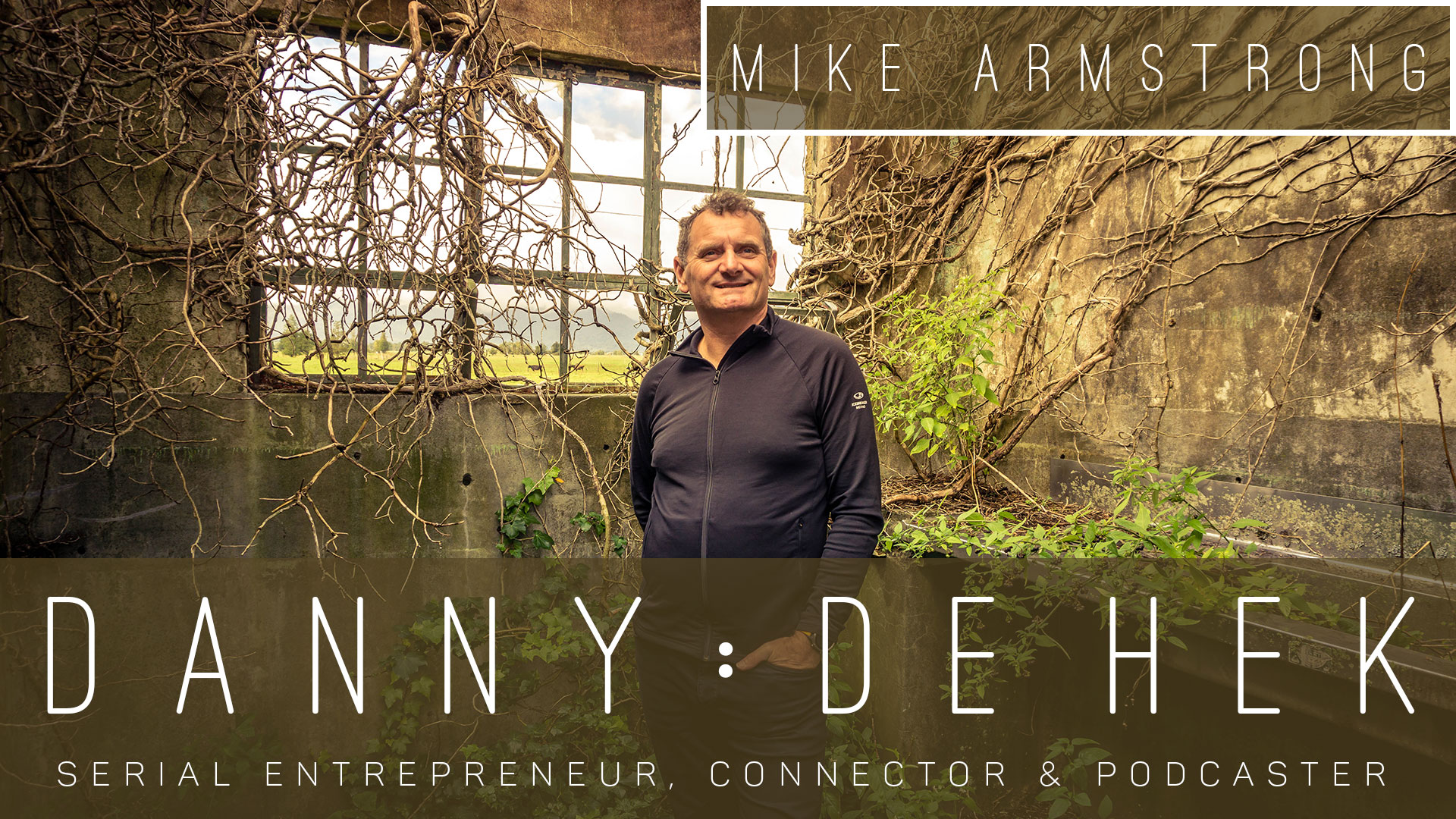
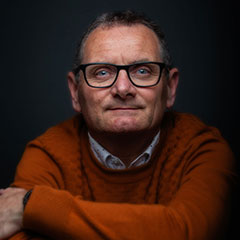
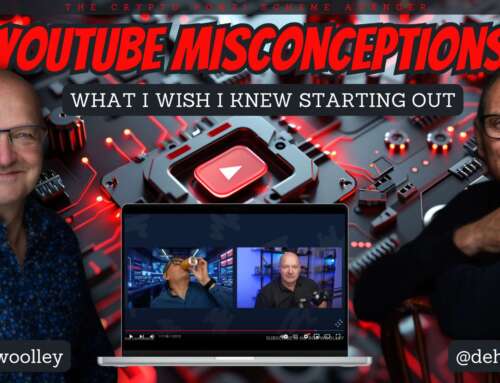
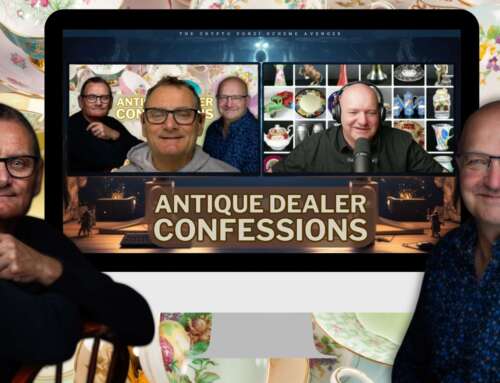
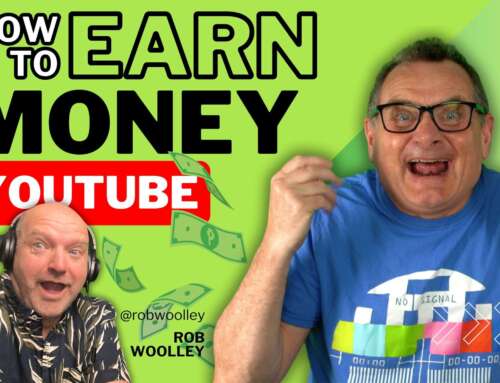
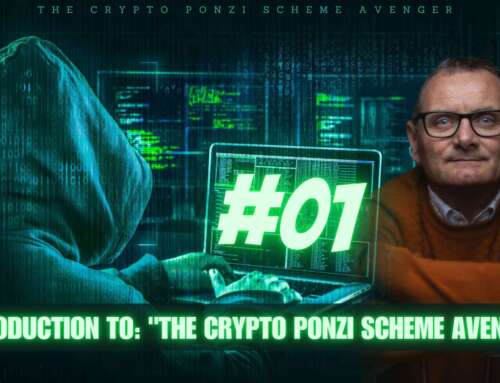
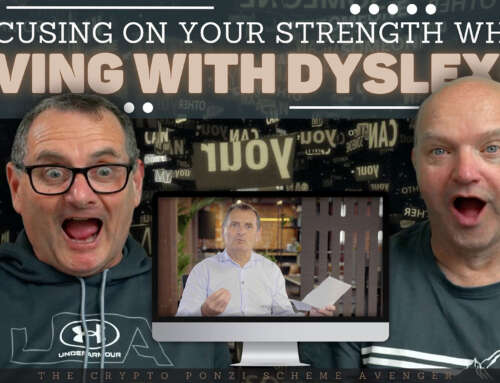
Leave A Comment